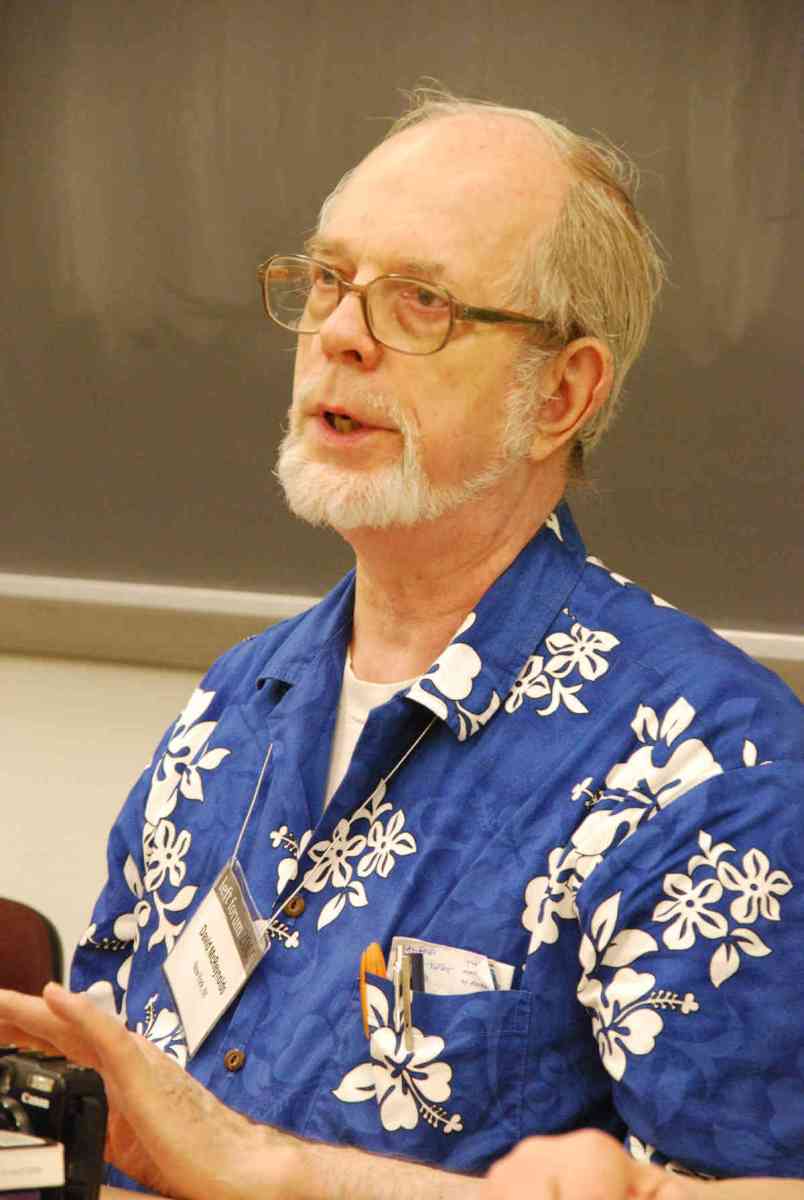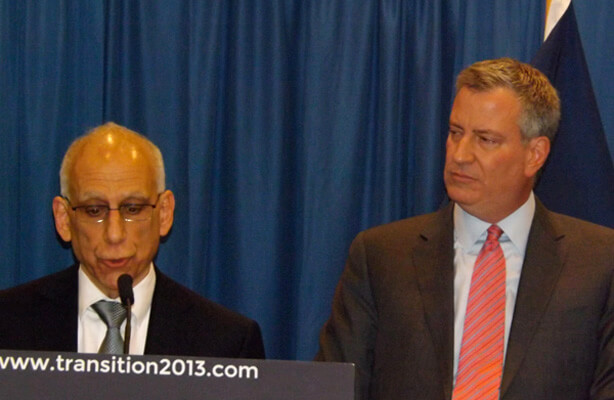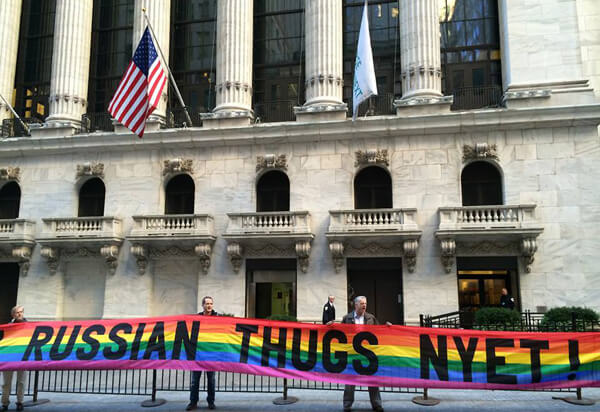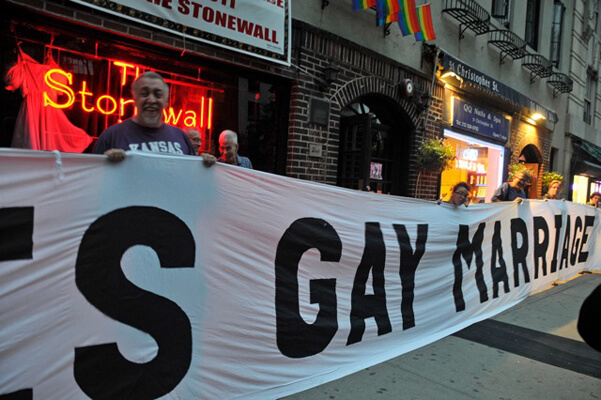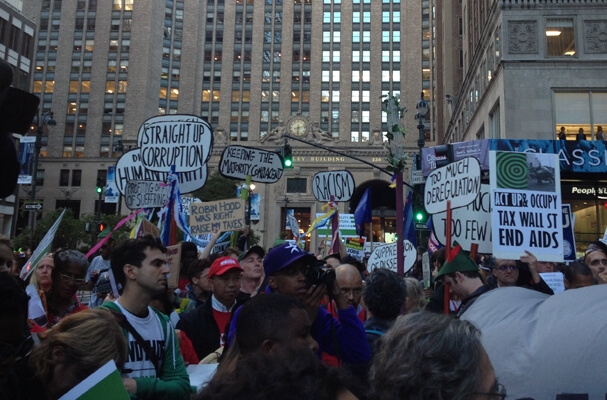David McReynolds, who died at 88 on August 17 in Manhattan, is being primarily remembered as one of the nation’s leading pacifists and anti-war campaigners and as a two-time Socialist candidate for president. But he took the bold step of coming out publicly in an article in 1969. And while he never considered the LGBTQ movement his primary cause, he maintained a lifelong commitment to living openly.
McReynolds dedicated 40 years to working in the War Resisters League with the legendary A.J. Muste and was mentored by Bayard Rustin, also a mentor to Martin Luther King, Jr., and the lead organizer of the 1963 March on Washington. Rustin, too, was openly gay.
McReynolds had opposed the Korean War in the 1950s and marched with the early Civil Rights Movement. To protest the Vietnam War in 1965, McReynolds joined four other men in suits in publicly burning their draft cards in defiance of the law, though he was not prosecuted because he was 36 and so beyond draft age. He considered the action “penance” for voting for Lyndon Johnson in 1964 in his race against Barry Goldwater. Johnson had convinced many peace activists —including Dr. Benjamin Spock — that he would not escalate US involvement in Vietnam.
McReynolds became a key leader of the massive anti-Vietnam War demonstrations of the 1960s and into the ‘70s and the tumultuous demonstrations at the 1968 Democratic Convention in Chicago over Johnson’s war. He also played a major role in the 1982 anti-nuclear march in New York that was at the time the largest demonstration ever to take place in the city.
A dedicated socialist, he ran for Congress in 1958 and ’68 and for president of the United States in 1980 on the Socialist Party USA line — the first out gay person to run for the office.
“I want a society where people are more able to work — and work hard — at jobs that they enjoy and make a contribution to the world around them, but we don’t live in that kind of society,” he said in a video interview with filmmaker Anthony Giacchino.
When he ran for president again in 2000, he received an unusually high number of votes (2,908) in Palm Beach County, where voters were confused by the infamous “butterfly ballot” where voters who meant to vote for Al Gore ended up voting for candidates like McReynolds adjacent to his line. (Gore lost Florida by 1,784 votes to George W. Bush.) He was also the Green Party candidate for the US Senate against Chuck Schumer in 2004. He made each and every race in order to raise issues — from nuclear disarmament to economic justice — that were not embraced by the major parties.
In the early 1950s while a student at UCLA, McReynolds had a sexual relationship with the dancer and choreographer Alvin Ailey that helped him to accept his own gayness because Ailey “was the first gay person I met who was free of guilt.”
McReynolds was born October 25, 1929 in Los Angeles into a conservative Baptist family.
“My parents always said I was the cause of the Depression,” he said wryly.
Visiting Germany in 1951 and seeing the destruction wrought by war, he said, “I had a profound religious experience and went up to an old lady and said, ‘I’m sorry, I’m sorry’ and broke down.” He said he realized that as an American, “I dropped the bombs.” This sparked his pacifism and resistance to all wars.
“The reason you don’t kill is because each human being is unique and irreplaceable,” he said. “They are a shadow of yourself, they are a part of you… That person is my brother or my sister.”
In addition to his lifelong activism, he was a prolific and accomplished photographer and a cat-lover. A longtime resident of the East Village, he was close friends with Quentin Crisp there.
“David McReynolds waged a helluva fight against war and greed,” said gay civil libertarian Bill Dobbs. “At turns a gentle pacifist and irascible, McReynolds made a mark with a lifetime of principled activism for a humane world.”
Veteran gay and peace activist Steve Ault, who worked with McReynolds for over 40 years and with him and Bruce Cronin on the ’82 anti-nuke march, relayed that Cronin told him, “David suffered neither a heart attack nor a stroke. He fell and was immobilized, probably for six days before being found. He was alive but unconscious. He died about a day later, succumbing to multiple organ failure from extreme dehydration.”
Ault said that McReynolds joined Allen Ginsberg and the non-gay songwriter and singer Dave Van Ronk in checking out the Stonewall Rebellion while it was in progress and that Van Ronk was the one who ended up getting arrested.
Gay attorney and activist Michael Lavery, a founder of Lambda Legal, wrote on Facebook, “I met him in the Fall of 1961 in Pittsburgh when he was organizing for the Student Peace Union and Turn Towards Peace anti-nuke protest at the White House, November 1961.”
Also on Facebook, Laurence Pagnoni, a non-profit fundraising expert, wrote that McReynolds was “proud to have been Bayard Rustin’s assistant at the Fellowship of Reconciliation where he once told me ‘my values were refined toward nonviolence and I learned so much from Bayard.’”
Gay political scientist and activist Ken Sherrill, in an email, wrote that he had admired McReynold’s anti-war and anti-nuke activism since “I was sixteen, but we first met when I was in my early 70s.” He added, “David was a gay man and he liked looking at men, thinking about them, and talking about them. What do I mean, ‘them?’ I should say “us” but I wasn’t as wholesome as his type. What I loved was that this gay man of a certain age still lusted after men who he found attractive. We should all live long enough to keep on doing that.”
In a speech in 2011, McReynolds said, “Do not be dismayed that we are in such a troubled time. Large numbers of Americans seem impressed by Sarah Palin, Glenn Beck, or Donald Trump. Would you rather have found yourselves in a comfortable time when your voice wasn’t needed?… Even in defeat, we are victorious, for we have given our lives a meaning others should envy. In struggling for something greater than ourselves, we will be transformed.”
McReynolds is survived by his brother, Martin McReynolds, and sister, Elizabeth Gralewski. A memorial service is being planned for December 2, with details to be announced later.

